Select Language

By Richa Naidu, Aishwarya Venugopal
LONDON (Reuters) -Santa Claus may not have as much to give this year because hard up shoppers in Europe and the United States are prioritizing food and household staples, global toy makers and industry experts said.
Consumers worldwide have struggled to cope with high inflation and sluggish economic growth. The holiday season, which begins with Black Friday at the end of November and lasts roughly until the end of December, is expected to be especially tough for retailers selling discretionary items, executives say.
Favourites such as Barbie dolls, Transformers action figures and Hot Wheels cars will still be at the top of children's wish list, said Loo Wee Teck, consumer electronics industry manager at Euromonitor International.
But many parents can't afford them this year, according to executives. The top selling Barbie doll on Amazon (NASDAQ:AMZN), "Barbie Pop Reveal", currently costs parents 19.99 pounds ($24.89). Meanwhile, Hot Wheels' Scorpion play set was 35 pounds in 2020, according to parent blogs, but the same toy is about 60 pounds on Amazon.co.uk this year.
"The most important thing for people this holiday is to have food on the table for their families," Isaac Larian, CEO of Bratz doll maker MGA Entertainment, said in an interview.
Toymakers Hasbro (NASDAQ:HAS) and Mattel (NASDAQ:MAT) have already warned of weaker industry sales. But trading could prove even tougher than expected, executives at four toymakers and experts told Reuters.
Larian is expecting holiday sales at his company, which also makes Little Tikes toys and sells products across Europe and the United States, to decline by 10-12% worldwide versus last year.
Demand in the lead up to Christmas will be "smaller" than last year, said Nic Aldridge, managing director at Bandai, the maker of Tamagotchi virtual pets.
Aldridge anticipates more price cuts as retailers look to shift older products.
"The was an abundance of supply from previous years so there is a lot of clearance stock and a lot of deep discounting," he said.
BLACK FRIDAY OFFERS CLUES
Global sales of action figures like Transformers and Spiderman are projected to decline by 2% this year, Euromonitor
forecasts.
Anticipating the lower demand and already holding surplus inventory, many retailers ordered in less product than usual this year. That means products that are in demand may sell out quickly. Black Friday will give retailers an early indication.
"We are seeing some early Black Friday sales start just now," Barbie maker Mattel's president and chief commercial officer, Steve Totzke, told Reuters on Monday.
Mattel's inventory levels at the end of the third quarter declined by double-digit percentage versus the prior year, with weeks of supply down high single digits, it said last month.
MGA Entertainment ordered and made less product, Larian said, because it wanted to be "cautious and conservative" but now expects to run out of some new toys as a result.
U.S. imports of toys fell by 32% year over year in the three months to Aug. 31, 2023 in dollar terms, according to S&P Global Market Intelligence's trade data firm Panjiva. That's usually a key ordering period for holiday stock. Shipments by sea - measured by number of containers - fell by 8% in September.
"The market for toys has been declining for the whole year," said Florian Sieber, CEO of German toy maker Simba. Demand from consumers in Europe is lower than last year and last year was already down from the previous year, Sieber added.
Still, some anticipate a late surge in demand.
"We are expecting a good holiday season for Mattel," Totzke said. "We expect to continue to gain share throughout the holiday season."
Frédérique Tutt, Global Toys Advisor at data firm Circana, formerly NPD, said toy sales were down about 7% year-on-year in countries it tracks in the first nine months of the year, but that she expects shoppers to come through in the three weeks before Christmas. The categories with the best performance to date are games and puzzles, plush, building sets and vehicles, she said.
"There'll be some money set aside for toys," said Jerry Storch, chief executive officer of consultancy Storch Advisors and former CEO of Toys-R-Us and Hudson (NYSE:HUD)'s Bay Co. "But it's a reality that there won't be as many toys sold this year as last year."
($1 = 0.8032 pounds)
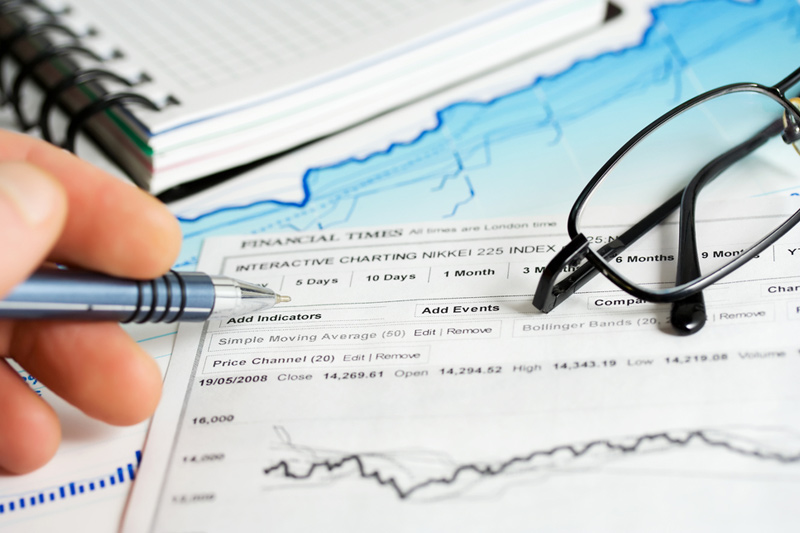
WASHINGTON D.C. - The International Monetary Fund (IMF) has approved a 48-month Extended Credit Facility (ECF) arrangement for Malawi worth US$175 million, aimed at addressing the country's pressing economic difficulties and supporting long-term growth. This financial assistance is expected to play a crucial role in stabilizing the Malawian economy, which has been struggling with unsustainable borrowing, external shocks, and exchange rate instability.
The approval of the ECF by the IMF on Wednesday is a significant move that marks a return of donor confidence in Malawi after a decade-long hiatus caused by the Cashgate scandal. This development is set to unlock much-needed donor budgetary support and foreign investments for the country. Among the initiatives bolstered by this decision is the World Bank's US$60 million Trade Finance Facility, which will help boost foreign exchange reserves.
President Lazarus Chakwera, speaking on Wednesday, underscored the importance of the ECF as a positive signal to international investors that Malawi is committed to creating an investment-friendly environment that meets international standards. He outlined the ATM Strategy which focuses on driving investments across Agriculture, Tourism, and Mining sectors. This strategy includes establishing Mega Farms for exports and reorganizing and monetizing the country's mineral resources. Chakwera acknowledged that businesses have been affected by foreign exchange shortages but assured that improvements are expected, despite the challenging reforms that have been introduced, including the devaluation of the Malawi Kwacha.
The ECF program is designed not only to stabilize the economy but also to promote inclusive and sustainable growth. It aims to enhance resilience against climate-related shocks, improve governance, and instill fiscal discipline through a robust public financial management system. Additionally, it seeks to rebuild international reserve buffers to allow for greater exchange rate flexibility.
The IMF's support comes at a critical time as Malawi grapples with various challenges, including recent natural disasters like cholera outbreaks and Cyclone Freddy. Despite receiving substantial development aid in the past, maintaining consistent economic growth has been challenging for the country.
Gita Gopinath, Deputy Managing Director of the IMF, commended Malawi's commitment to policy measures under the Program Monitoring Board (PMB) program and their efforts towards securing debt treatment under the Common Framework. The financial package from the IMF also aligns with Malawi's 2063 vision, which aims to transform the country into a predominantly production-driven economy led by private sector growth.
In addition to IMF support, Chakwera highlighted other initiatives such as the World Bank's US$217 million fiscal reform package and an Agricultural Commercialization Project with US$30 million allocated for maize procurement. Budgetary support from international partners like the European Union, African Development Bank, and International Fund for Agricultural Development will further contribute to these reform efforts.
This new chapter follows after Chakwera’s Tonse Alliance government had previously agreed with the IMF in August 2020 to cancel a three-year ECF due to policy changes. The reinstatement of IMF support through this new ECF arrangement represents a significant step towards economic recovery and sustainable development for Malawi.
This article was generated with the support of AI and reviewed by an editor. For more information see our T&C.
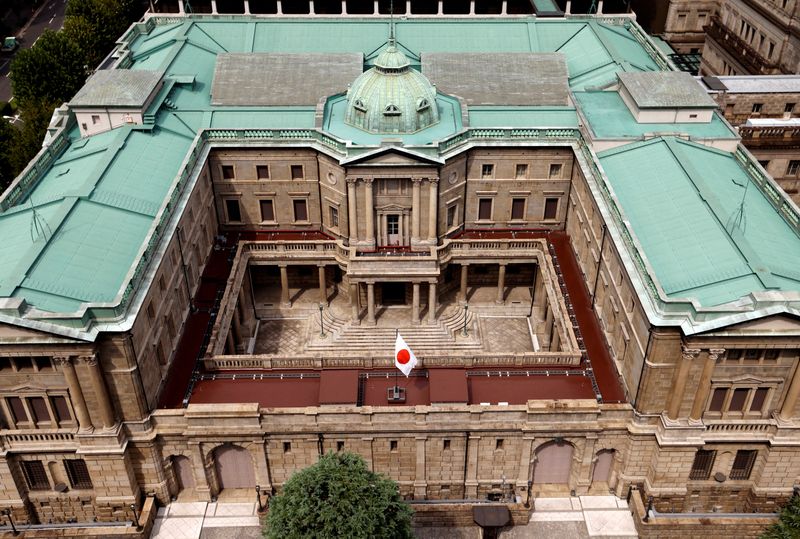
By Leika Kihara
TOKYO (Reuters) -The Bank of Japan has stepped up its drum beat of hawkish comments over the past week, in a series of communications that insiders say is priming markets for an end to negative interest rates, which could happen in the first few months of next year.
The distinct change in BOJ commentary is a part of Governor Kazuo Ueda's plan to dismantle the controversial monetary stimulus of his dovish predecessor Haruhiko Kuroda, which has been blamed for a host of issues including the yen's sharp declines.
The hawkish tilt follows the BOJ's decision last month to relax its cap on long-term rates by tweaking its yield curve control (YCC) policy and contrasts with the rhetoric of Ueda shortly after he took the helm this year, which seemed to call for a continuation of Kuroda-era stimulus.
Ueda last week said Japan was making progress in sustainably hitting the BOJ's 2% inflation target, and that it won't necessarily wait until real wages turn positive in phasing out stimulus. Three sources familiar with the bank's thinking say the shift to a less dovish tone was intentional.
"The governor's comments on inflation have been gradually changing over the past few months, which give a very good steer on the BOJ's policy direction," one of the sources said.
"The BOJ is probably in a phase now where it's looking for the appropriate timing to raise interest rates," another source said, a view echoed by a third source.
Ueda's efforts to move Japan away from the extremely accommodative monetary settings of the part decade are complicated by risks that doing so too quickly could hurt a fragile economic recovery and trigger massive market upheaval.
However, with inflation continuing to overshoot the BOJ's 2% target, the economic justification for a shift is gradually building.
Having watered down YCC at its last policy meeting, the BOJ's next goal is to pull short-term rates out of negative territory early next year, sources have told Reuters.
REASONS FOR CHANGE
The BOJ has said next year's spring wage talks between business and unions will be key to the timing of an exit. Many big firms typically settle pay around mid-March, which heightens the chance of a policy change in April.
But the BOJ does not necessarily need to wait for wage talks to conclude to tweak policy, as long as sustained achievement of its price goal can be foreseen, the sources say.
The bank's nine-member board is also tilting more hawkish with some calling for the need to start phasing out massive stimulus and communicate the chance of a future exit from ultra-low rates, a summary of opinions at their October meeting showed.
"It's natural to think the BOJ is starting to lay the groundwork for normalising policy," said Mari Iwashita, chief market economist at Daiwa Securities and a veteran BOJ watcher.
More imminently, other data points for policy deliberations could come from the bank's "tankan" business sentiment survey due on Dec. 13, a gathering of BOJ regional branch managers in early January, and comments from business and union executives on next year's pay goals.
That leaves open the chance of an policy change in January, when the BOJ next reviews its quarterly price forecasts.
"It's really a matter of conviction and certainty. In the end, it's a judgment call," one of the sources said.
Nearly 60% of economists polled by think tank Japan Center for Economic Research after the October policy tweak expect the BOJ to tighten policy in April, followed by 12% projecting a January move. Most expect an end to both YCC and negative rates.
LONG ROAD
The BOJ's latest price projections released in October show inflation is expected to remain stubbornly above the bank's target in the fiscal year ending March 2024, casting doubt on its view that recent cost-driven price rises are temporary.
Its current projection for "core-core" inflation, which strips away fresh food and fuel, is at 3.8%, up a hefty two percentage points from the January estimate.
"It's an awfully big upgrade and shows how the BOJ had made estimates that were way too low," said former BOJ top economist Hideo Hayakawa, who expects negative rates to end in April.
There are plenty of risks that could hamper an early exit, such as a U.S. recession. Ueda must also avoid drawing heat from reflationist-minded lawmakers.
But the BOJ cannot afford to wait too long. Even if it ends negative rates, nominal short-term borrowing costs will remain well below levels that neither stimulate nor cool the economy - estimated by analysts to stand somewhere near 2%.
"Ueda's role is to get rid of the unconventional policies of his predecessor, and revert to a policy targeting short-term rates," said former BOJ board member Takahide Kiuchi. "That's a mission he needs to accomplish during his five-year term."
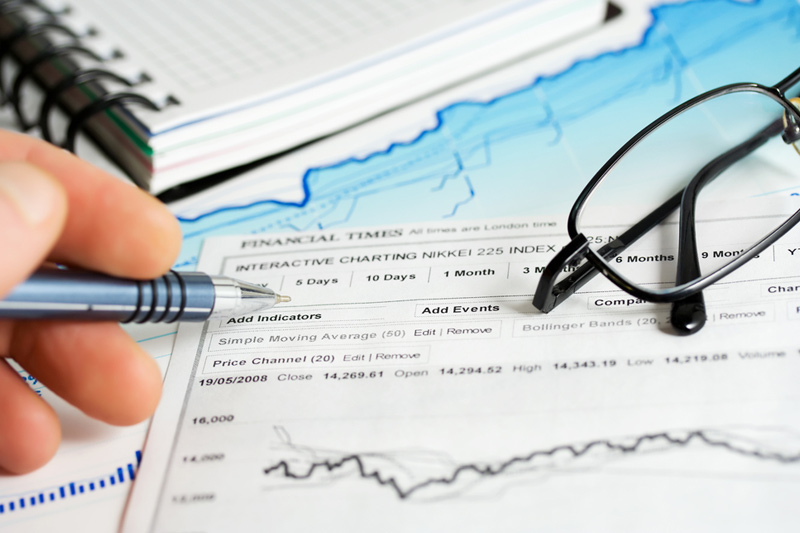
In a coordinated effort to further isolate Russia economically due to its ongoing war in Ukraine, the European Union, with the support of the G7 and Belgium, has unveiled its 12th package of sanctions. This latest round of punitive measures specifically targets Russia's non-industrial diamond trade, a significant revenue source for the country.
Belgian Prime Minister Alexander De Croo has committed to taking a stand against what he referred to as "Russian blood diamonds." Antwerp, a key player in the global diamond trade and a notable point of entry for Russian diamonds into Europe, is poised to play a central role in the enforcement of these sanctions.
The European Commission's proposal, announced today, includes an indirect import ban on Russian-processed diamonds in non-EU countries, which is expected to evolve into a complete prohibition by January 2024. This move is designed to curb the influx of Russian diamonds that have continued to enter the European market despite previously imposed sanctions.
To ensure compliance with the new restrictions, the EU and its G7 partners are developing a system to track diamond sales. This initiative aims to prevent sanctioned goods from slipping through enforcement nets and reaching markets illicitly.
Alrosa, the company that dominates Russia's diamond exports and represents 28% of global diamond mining output, had already come under U.S. Treasury Department sanctions in April 2022. Nevertheless, the EU's current focus on diamonds signals a ramping up of economic pressure on Moscow.
The proposed sanctions extend beyond diamonds, seeking to tighten an existing oil cap and introduce penalties for third-party nations that assist Russia in circumventing these measures. The comprehensive sanction package will require unanimous approval from all 27 EU member states before it can take effect.
Josep Borrell, High Representative of the EU for Foreign Affairs and Security Policy, views these measures as a strategic move to cut down on Russia's export revenues and destabilize its economy. Yet there is some skepticism about the effectiveness of EU sanctions. Gazprombank, which handles many of Russia's energy transactions with Europe, appears to have been spared from the harshest penalties levied against other Russian entities. This has raised questions about the EU's capacity to implement impactful sanctions.
Earlier this year in April, Poland and Baltic nations had pushed for Gazprombank's exclusion from SWIFT, the international payment system critical for global financial transactions. Despite their efforts and increasing frustration within the European Parliament over perceived shortcomings in sanction strategies against Russia, Gazprombank continues to operate within SWIFT.
As tensions escalate and the war in Ukraine persists without a clear end in sight, Europe is striving to find new avenues to apply economic pressure on Russia while grappling with the complexities of enforcing effective sanctions across its member states.
This article was generated with the support of AI and reviewed by an editor. For more information see our T&C.

Economists from ANZ Bank New Zealand and Westpac Banking (NYSE:WBK) Corp have revised their fourth-quarter inflation forecasts for New Zealand downward following the release of weaker-than-expected October data from the newly introduced monthly Consumer Price Index (CPI). Both financial institutions have reduced their annual inflation predictions to 4.8% from a prior estimate of 5.1%. The Bank of New Zealand has also acknowledged a potential downside risk to its forecast of 4.9%.
The new monthly CPI, which was implemented in response to a request from the Reserve Bank of New Zealand (RBNZ), now includes indexes covering items such as fuel, alcohol, tobacco, accommodation services, and airfares, making up about 45% of the CPI basket. The October figures showed notable declines in domestic and international airfares, food prices, and the cost of gasoline.
Despite these decreases, the overall picture remains mixed, with Westpac still expecting high rates of non-tradable and core inflation. However, the softer inflation data could suggest that the RBNZ might hold off on raising the Official Cash Rate (OCR), which is currently at 5.5%. Yet, ANZ and Westpac are forecasting another OCR increase in early 2024 to help bring inflation back within the central bank's target range of 1-3%.
This adjustment in forecasts by major banks indicates a shift in expectations regarding New Zealand's inflation trajectory and monetary policy outlook. As the country grapples with economic pressures, these revised projections provide insight into potential future moves by the RBNZ as it balances growth with price stability.
This article was generated with the support of AI and reviewed by an editor. For more information see our T&C.
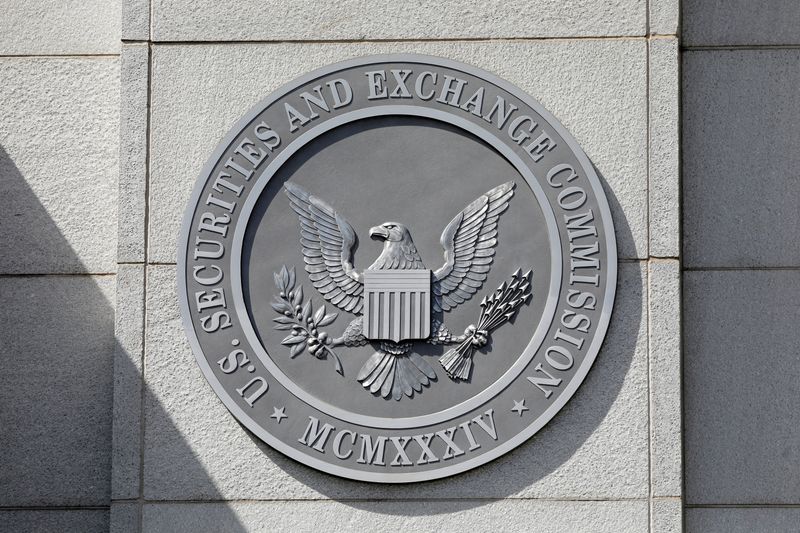
NEW YORK (Reuters) -The U.S. Securities and Exchange Commission (SEC) filed 784 enforcement actions in the fiscal year that ran through September, garnering $4.95 billion in penalties and other financial remedies, the agency said in a statement on Tuesday.
The total financial remedies in fiscal 2023 were the second-highest in SEC history, following last year's record of $6.4 billion, including both disgorgement and interest in addition to civil penalties. The figures underscore how the agency has sought to more aggressively police violations and misconduct under Democratic leadership.
The SEC barred 133 individuals from serving as directors and officers of public companies, the highest number of such bans in a decade, the SEC said in a statement.
The SEC's tally included settlements with 25 broker-dealers, advisers and others over employees' use of personal devices and apps including WhatsApp, the agency said.
The regulator obtained a $178.6-million civil penalty against Danske Bank to resolve charges of misleading investors over its efforts to combat money-laundering and $56 million in fines and other remedies against mining firm Vale SA (NYSE:VALE) over false and misleading disclosures leading up to a dam collapse that killed 270 people.
The year's enforcement work also included high-profile lawsuits against players in the cryptocurrency sector, such as FTX founder Sam Bankman-Fried.
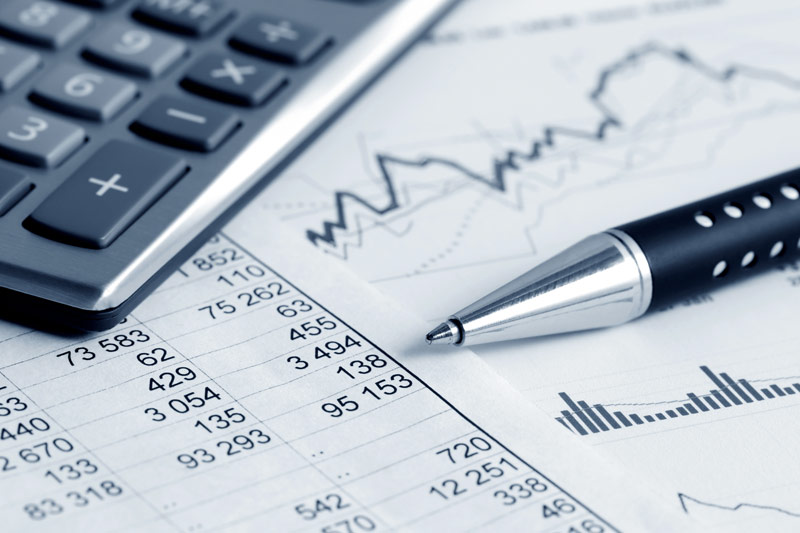
The United States government has put forward a proposal to support India's ambitious plan to transition to electric buses. The proposal, which is currently under negotiation, involves the US extending a $150 million payment guarantee for companies that will supply electric buses to India's state transport undertakings (STUs). This financial backing is seen as a key move to bolster India's National Electric Bus Programme (NEBP), which aims to float tenders for approximately 50,000 electric buses over the next five years.
The initiative is part of a broader strategy to foster e-mobility adoption in India and shift away from diesel-powered transportation, aligning with the country's net zero ambitions. To mitigate past issues faced by suppliers, such as the financial challenges of STUs and the absence of payment guarantees, an escrow account will be established to serve as a payment security mechanism should STUs default on payments.
The discussions are taking place against the backdrop of Commerce and Industry Minister Piyush Goyal's visit to the United States, where he is also engaging with Tesla (NASDAQ:TSLA) CEO Elon Musk regarding the establishment of Tesla's first factory in India. The ongoing talks and the proposed fund are expected to gain further momentum with US President Joe Biden's planned visit to New Delhi in January, an event that is anticipated to enhance bilateral relations and promote collaborative efforts on clean energy and transportation.
The need for such financial instruments became evident following obstacles encountered in January 2023 when Convergence Energy Services Ltd (CESL) tendered for 4,675 electric buses but faced hurdles due to the lack of payment guarantees. By introducing a payment security mechanism, both countries aim to address these financial barriers and ensure manufacturers are safeguarded against potential defaults by STUs.
This article was generated with the support of AI and reviewed by an editor. For more information see our T&C.
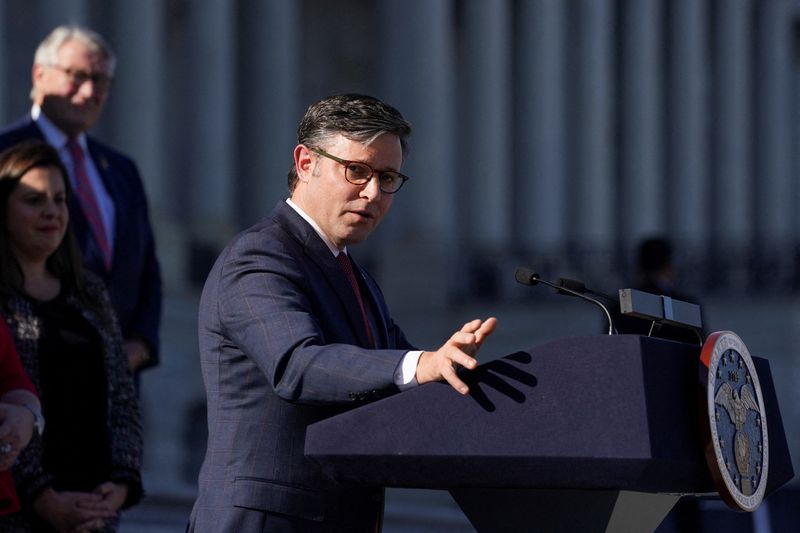
By David Morgan and Moira Warburton
WASHINGTON (Reuters) -The U.S. House of Representatives on Tuesday passed a temporary spending bill that would avert a government shutdown, with broad support from lawmakers in both parties.
The legislation, which would extend government funding through mid-January, now heads to the Senate, where Democratic and Republican leaders have voiced support.
To prevent a shutdown, the Senate and Republican-controlled House must enact legislation that President Joe Biden can sign into law before current funding for federal agencies expires at midnight on Friday.
The 336-95 vote was a victory for House Speaker Mike Johnson, who faced down opposition from some of his fellow Republicans, in the first consequential vote of his tenure.
Johnson was elected to the post less than three weeks ago, following weeks of tumult that left the chamber without a leader. With a slim 221-213 majority, he can afford to lose no more than three Republican votes on legislation that Democrats oppose.
Senate Majority Leader Chuck Schumer, a Democrat, said in a statement on Tuesday night after the vote that he was pleased the bill passed "with a strong bipartisan vote," adding that he would work with his Senate Republican counterpart, Mitch McConnell, to pass it "as soon as possible."
The stopgap spending bill would extend government funding at current levels into 2024, giving lawmakers more time to craft the detailed spending bills that cover everything from the military to scientific research.
Some Republicans on the party's right flank said they were frustrated that it did not include the steep spending cuts and border-security measures they sought.
The bill passed with 209 Democratic and 127 Republican votes, while 93 Republicans and two Democrats voted against it.
Johnson's predecessor as speaker, Kevin McCarthy, was ousted by a handful of Republicans after a similar vote in September that relied on Democratic votes to avert a shutdown.
But hardline conservatives said they were not turning against Johnson. "We don't support it. But we do support him," said Representative Bob Good.
Other Republicans said it was better than other options.
"This isn't ideal," Republican Representative Mike Garcia said. "But a shutdown is a far worse world to be in."
Johnson's bill would extend funding for military construction, veterans benefits, transportation, housing, urban development, agriculture, the Food and Drug Administration and energy and water programs through Jan. 19. Funding for all other federal operations - including defense - would expire on Feb. 2.
Congress is in its third fiscal standoff this year, following a months-long spring impasse over the more-than-$31 trillion in U.S. debt, which brought the federal government to the brink of default.
The ongoing partisan gridlock led Moody's (NYSE:MCO) on Friday to lower its credit rating outlook on the U.S. to "negative" from "stable," as it noted that high interest rates would continue to drive borrowing costs higher.
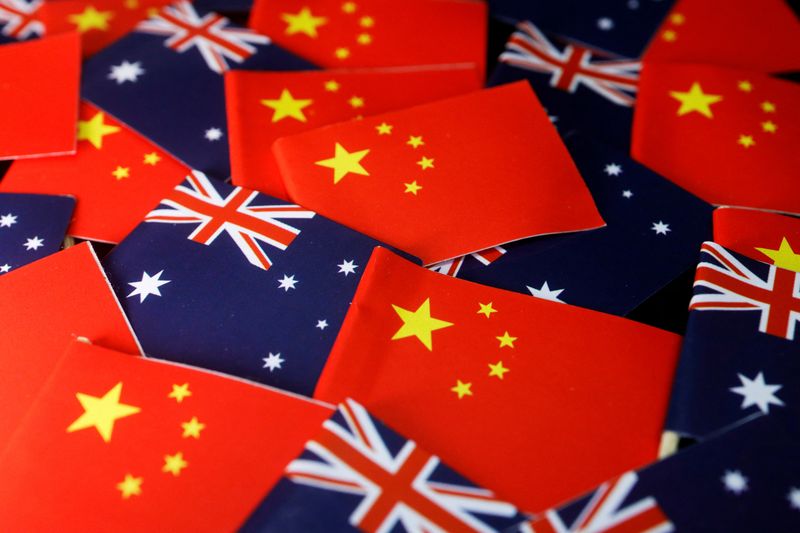
SYDNEY (Reuters) - Australia said on Wednesday China could lift all its remaining trade blocks by next month as relations between the commodity trade partners stabilise and after Prime Minister Anthony Albanese's visit to Beijing earlier this month.
Albanese's government has taken credit for patching up ties with China since coming to office last year. China has lifted most trade blocks imposed amid a 2020 diplomatic dispute after Australia called for an inquiry into the origins of COVID-19.
"I remain very confident ... that by Christmas all of these trade impediments will be removed," trade minister Don Farrell told ABC Radio from San Francisco, where he is attending Asia-Pacific Economic Cooperation (APEC) meetings.
"And we will have restored that stable relationship that we want with our largest trading partner."
Farrell said he hoped to resolve the issues over lobster and beef, which related to bio-security rules, ahead of a meeting with Chinese counterpart Wang Wentao in San Francisco.

BENGALURU (Reuters) -U.S. electric car maker Tesla (NASDAQ:TSLA) Inc is planning to double the number of components it imports from India, Indian trade minister Piyush Goyal said on Tuesday through a post on social media platform X.
"Proud to see the growing importance of Auto component suppliers from India in the Tesla EV supply chain. It is on its way to double its components imports from India," Goyal posted on X, earlier called Twitter, after visiting Tesla's manufacturing facility at Fremont, California.
He was, however, unable to meet Tesla chief Elon Musk during his visit to the plant, Goyal added.
He said in September Tesla was aiming to source components worth between $1.7 billion and $1.9 billion from India this year, having bought $1 billion of components last year.
The minister's visit to the U.S. was supposed to include discussions with Musk around Tesla's plans to setup an Indian factory, manufacturing a $24,000 car there, sourcing more components and establishing charging infrastructure across the nation, Reuters reported last week.

